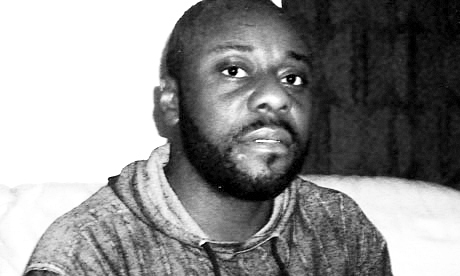The family of Jimmy Mubenga has been left devastated by the recent decision not to prosecute the three G4S officers involved in his death.
Jimmy, a father of five, died after being restrained on a plane at Heathrow airport in October 2010. His family have been waiting since that time for the police to complete their investigation and then for the Crown Prosecution Service (CPS) to decide whether to take action. The three G4S officers involved in Jimmy’s death have been re-bailed on numerous occasions as the CPS sought further evidence. Jimmy’s wife and children and wider family have endured an agonising wait as the CPS prevaricated.
The perverse decision, unfortunately, is par for the course for the CPS, which seems unwilling to hold agents of the state accountable for their involvement in BME deaths in custody. Time and time again they have failed to find enough evidence for ‘a realistic chance of a prosecution’.
Numerous other families have been in the same position that the Mubenga family now find themselves in, waiting for months (and even years) to be told no charges are to be brought against those involved in the death of their loved ones, for example, Frank Ogboru (2006), Paul Coker (2005), Roger Sylvester (1999) and Shiji Lapite (1994).
There have been a few, but unsuccessful prosecutions of police and prison officers for involvement in a BME death in custody, for example, police officers were prosecuted in connection with the deaths of Joy Gardner (1993), Christopher Alder (1998), Mikey Powell (2003) and prison officers were prosecuted for involvement in the death of Michael Bailey at Rye Hill (2005). None of these prosecutions resulted in convictions.
The CPS manages to use the doctrine of joint enterprise (common purpose) to prosecute an ever increasing number of young people and get convictions for serious crimes on the most tenuous and flimsy evidence. So why doesn’t the same level of evidence apply to police and prison officers? A police officer is probably more likely to be convicted for animal cruelty than for a BME death in custody![1]
G4S
This is by no means the first death in custody involving G4S personnel. Recently G4S was criticised following the death of Shaun Beasley (29) who was found hanged in his cell at HMP & YOI Parc on 24 August 2010. Other men have also died in dubious circumstance in G4S-run prisons. Eliud Nguli Nyenze (40) a Kenyan man died at Oakington removal centre in Cambridge after apparently suffering a heart attack in April 2010 and Aleksey Baranovsky (33), a Ukrainian man, bled to death in his cell at Rye Hill prison, Warwickshire in June 2006.
Was this also a good week for the CPS to bury bad news? G4S’ involvement in the death of Jimmy Mubenga and the CPS’ failure to hold them to account seems to have been largely ignored by the media – amazing when considering the current controversy surrounding G4S’ failures to guard the Olympics.
The Mubenga family will now have to await the inquest in to Jimmy’s death when a jury will be allowed to consider the evidence and decide if he was unlawfully killed. If a jury were to record such a verdict then the CPS would again have to consider whether to charge the officers involved. This is the most the family can hope for. (Unless of course they decide to take legal action against the CPS.)
Makenda Adrienne Kambana, Jimmy’s wife commented on the CPS decision: ‘We are distraught my husband has been taken away from me and my children have lost their father. He was crying for help before he was killed. We can’t understand why the officers and G4S are not answerable to the law as we or any other member of the public would be.’
So many families have uttered similar sentiments when the judical system has failed to provide them with justice. It has been over forty years since two police officers were imprisoned in 1971 for hounding David Oluwale to his death in 1969. Since then no police or prison officer has been successfully prosecuted for involvement in a BME death in custody.
Related links
CPS press release: ‘CPS decision on death of Jimmy Mubenga’
Guardian reporting on Jimmy Mubenga
Read an IRR News story: ‘Perverse failure to prosecute G4S over Jimmy Mubenga’s death’
Read an IRR News story: ‘Jimmy Mubenga remembered’
Read an IRR News story: ‘Call for justice for Jimmy Mubenga’
Read an IRR News story: ‘Justice for Jimmy Mubenga’


The decision of the CPS not to bring charges against G4S over the death of Jimmy Mubenga also has another frightening implication. G4S now operate the COMPASS contract (paid for by public money) in Yorkshire, Humberside and the Midlands…to house people seeking asylum. What sort of message does this send to asylum seekers who will have G4S/G4S-subcontractors as their landlord?
I’m proud to be involved in the campaign to stop them. As one Zimbabwean asylum seeker in Sheffield said “I don’t want a prison guard as my landlord”. See http://notog4s.blogspot.co.uk/